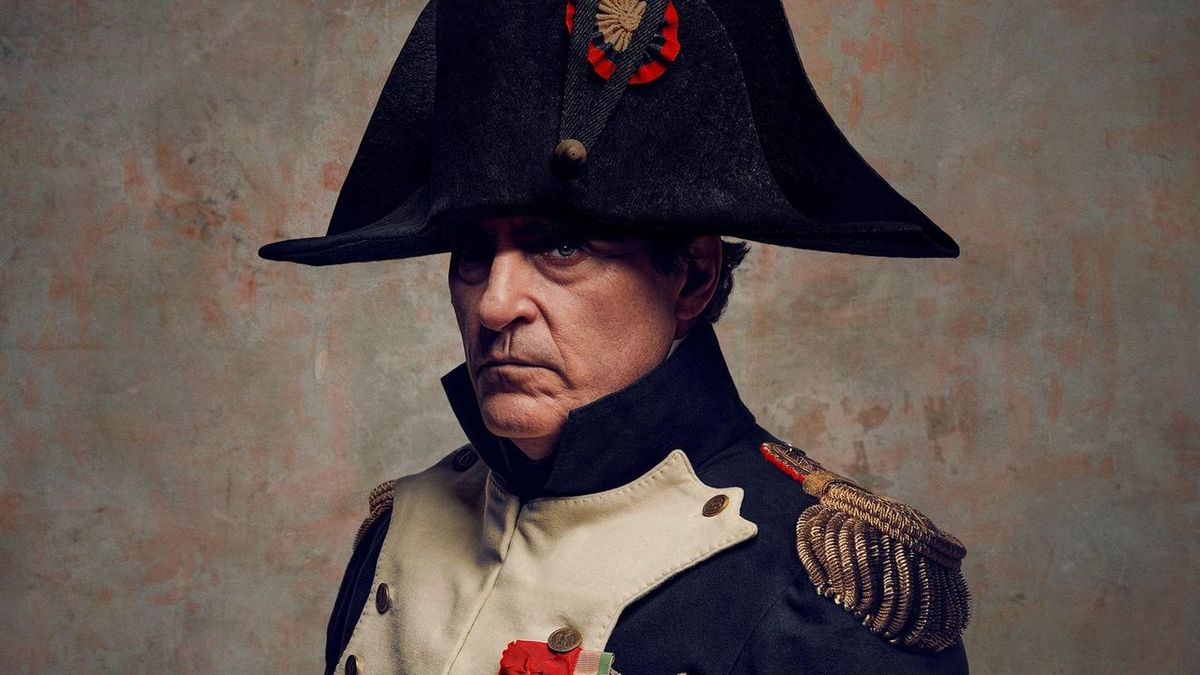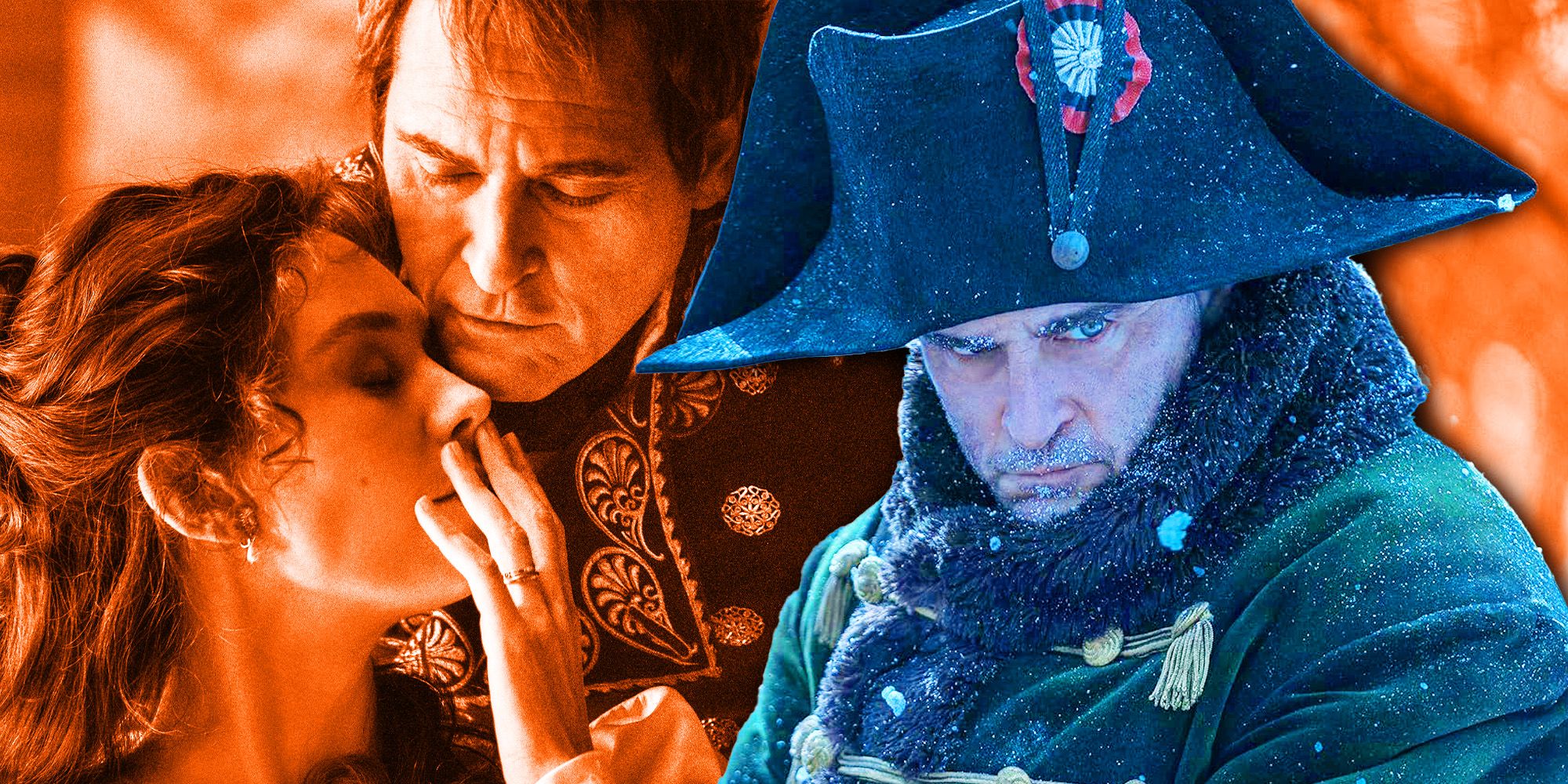Many had anticipated a historical film, a biopic, nearly a documentary, from “Napoleon,” but that was not Ridley Scott’s objective; it did not align with his vision. From the beginning, the British-American filmmaker consistently emphasized that his film is not intended to be a historical work but rather aims to capture the grandeur and scale of the Napoleonic era—an epoch when France was feared across Europe and beyond. The rest seemed inconsequential to Scott; his goal was to create a majestic, epic war film by exaggerating Napoleon’s tumultuous life while simultaneously offering a satirical, often absurd portrayal of the French Emperor. In this regard, he succeeded! Because indeed, if you seek to be visually overwhelmed at the cinema with grandiose staging and stunning visuals, then “Napoleon” delivers an exceptional experience.
TRULY FAR FROM HISTORICAL ACCURACY?
It has also been criticized for taking historical liberties, with some historians describing it as having anti-French and pro-British interpretations. These critiques were met with responses from Ridley Scott, who stated that “the French don’t even like themselves.” It is unfortunate that the film is discussed in this context, as the controversy has garnered significant media attention for Ridley Scott’s movie. However, setting aside these historical details—which are not as numerous as some claim—it is difficult not to appreciate the visual spectacle presented by Scott. The film was shot on natural sets with over 1,600 extras for certain scenes, particularly during battle sequences, incorporating some CGI (seamlessly integrated), wide shots, impressive sets, and most notably, stunning costumes that make some scenes resemble paintings, especially Napoleon’s coronation scene—it is strikingly beautiful. It is challenging to leave such an entertaining experience feeling disappointed. This is what Ridley Scott aims to deliver: entertainment while ensuring viewers exit the theater captivated by the visuals, all while offering his interpretation of Napoleon. The film runs for 2 hours and 39 minutes, which is lengthy (and has become standard in 2023), but clearly insufficient if one aims to cover the entire life of such a figure comprehensively. If historical accuracy and precision are sought, a 10-15 hour series would be necessary, though there is no guarantee that audiences will engage with it.
In two hours and thirty-nine minutes, Ridley Scott bases his film on the relationship between Napoleon Bonaparte and Joséphine de Beauharnais, who was previously married and a mother of two children at the time of their union. Despite this, it becomes the great love of Napoleon’s life, whose image as an invincible strategic conqueror begins to crack under her influence. The film depicts Napoleon as completely in love with his wife, willing to forgive her infidelities, sometimes even making himself look foolish. It also portrays a Napoleon who is weak and unable to control his sexual impulses when it comes to Joséphine. This blind love creates an extremely toxic relationship, which would be considered unacceptable by today’s standards but was apparently rooted in the societal norms of the time. According to Ridley Scott, this complicated relationship contributes to Napoleon’s struggle to reconcile his private life with his public persona as a conqueror and military genius. Unable to dominate his wife while maintaining his status as emperor, he instead dominates the world. This duality, including the liberties taken with historical accuracy by Scott, reveals both Napoleon’s vulnerabilities and tyranny. The film necessitates a precise angle of approach, given its lengthy runtime, as Scott is compelled to employ temporal shortcuts and/or ellipses.
THE SHOW FIRST AND FOREMOST
Ridley Scott’s Napoleon is an epic and visually sumptuous film that surprises by challenging what viewers already know about the French emperor. The filmmaker aims to disrupt preconceptions about Napoleon, even if this involves depicting him in a less favorable light personally, while still acknowledging his greatness. This approach is not new for Scott, as seen with his work on Gladiator, which faced criticism from contemporary critics but gained significant recognition over time in cinema and popular culture. Filmmakers occasionally adapt events to fit their “cinematic vision,” and Scott does this without altering historical facts. Ridley Scott’s interpretation of Napoleon is particularly successful, presenting a unique perspective on the French emperor.
Have any thoughts?
Share your reaction or leave a quick response — we’d love to hear what you think!


